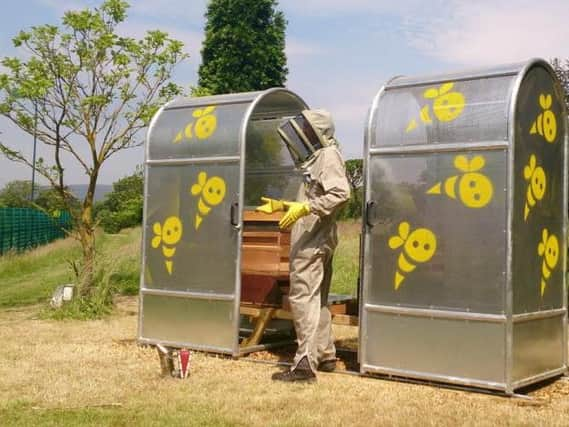Bee more like Burnley!


Speaking at the summit in London on Thursday, April 6th, Simon Goff - Head of Greenspaces and a Council Manager from Burnley - highlighted the bee-friendly practices carried out in the borough.
It was estimated by the council that meadow management in Burnley has made an annual saving of £58,000 - a figure expected to increase - while reducing grass cutting and planting wildflowers also helps protect the UK’s under-threat bee population.
Advertisement
Hide AdAdvertisement
Hide Ad“People visit parks to enjoy nature," said Simon. "We are adopting a more ecological approach to managing them, with large areas of previously-mown grass now managed as meadows.
"This saves money, reduces CO2 emissions, increases biodiversity, and creates more attractive and interesting parks," he added. “The council is facing huge cuts and so we are rethinking how we manage our greenspaces.
"We are [also] replacing expensive bedding schemes with herbaceous perennials,” Simon continued.
With surveys revealing that over 80% of the public back calls for councils to help protect bees by cutting grass less often to allow wild flowers to grow, the policy was commended at the Bee Summit, which was organised by Friends of the Earth and the Women’s Institute.
Advertisement
Hide AdAdvertisement
Hide AdSince 1900, the UK has lost 20 species of bee - none of which are protected by law - while a further 35 are considered under threat of extinction.
Along with Buglife - a conservation charity aiming to maintain sustainable insect populations - Friends of the Earth have launched a new ‘Helping Pollinators Locally' guide for local authorities on the measures they can take to help bees.
Friends of the Earth chief executive, Craig Bennett, said: “Local councils have a vital part to play in helping the UK’s under-threat bee populations. Policies, such as allowing grass to grow on roadside verges and in certain areas in parks, will help bees, [and] save cash-strapped councils money."
Friends of the Earth bee campaigner, Mike Birkin, added: “Britain’s bees are under threat; it’s great to see Burnley council taking a lead on measures to help these precious pollinators. We hope more councils up and down the country follow their example.“
Advertisement
Hide AdAdvertisement
Hide AdPublic support for the policies is clear, with 88% of people supporting councils in reducing the use of bee-harming pesticides and 92% supporting the planting of more wildflowers and other bee-friendly plants in local parks and community spaces.